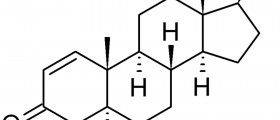
Signs of menopause
During the menopause, woman’s body responds to fluctuating hormonal levels, which causes a lot of unpleasant symptoms. The range and severity of symptoms usually vary from person to person. In general, symptoms include general lack of energy, hot flashes, abnormality of heartbeat, and various psychological effects such as anxiety, irritability, depression, changes in the mood, problems with memory and concentration, decreased sex drive. At this stage, it is also typical for women to experience vaginal dryness and increased need for urination.
Testosterone Use in Menopause
Testosterone is usually mentioned as a male hormone, but it is also one of the six hormones produced by the female reproductive organs. According to the most recent studies on treatment for menopause, testosterone therapy may also be very beneficial to women. This therapy is especially suitable for women who suffer from loss of sexual desire and other symptoms of testosterone deficiency. These symptoms include hot flashes, irritability and aggression, poor libido, loss of body hair and body mass, heart disease, sleep disturbances and urinary bladder discomfort.
Testosterone therapy may provide a number of benefits to women. For example, it may bring a relief of vasomotor symptoms of menopause. Testosterone therapy is also known to increase energy levels, sexual desire, and promotes the feelings of well-being. Moreover, this therapy will decrease breast tenderness and increase sexual sensitivity and the experience of orgasm.
However, this therapy is associated with certain side-effects, which may occur in some rare cases. The side effects are not very severe but can be unpleasing since they include voice changes, development of facial hair, formation of acne, and hyper-sexuality.
Testosterone therapy generally involves testosterone replacement available as oral estrogen-androgen combinations or other injectable and implantable forms. Compounded testosterone creams are also available, and medical care providers will recommend the most appropriate for each patient.
- www.nhs.uk/conditions/male-menopause/
- www.nhs.uk/conditions/menopause/treatment/
- Photo courtesy of Eduardo Garcia Cruz by Flickr: www.flickr.com/photos/128511347@N05/15138790244/

















Your thoughts on this
Loading...